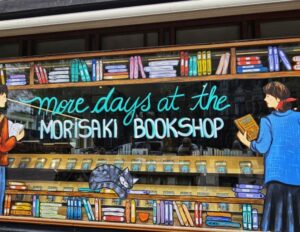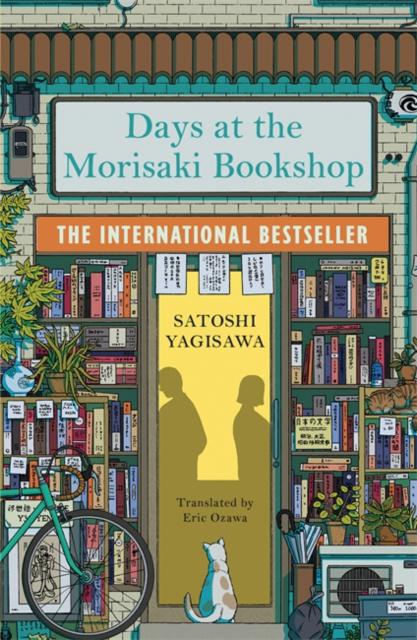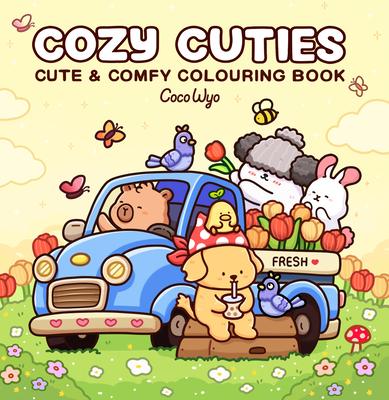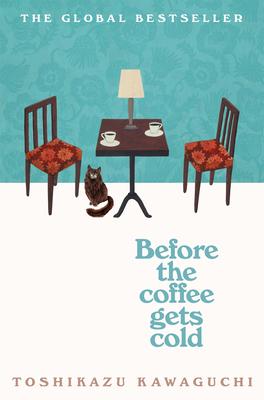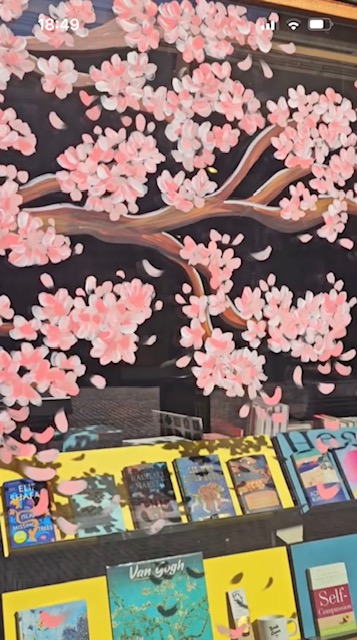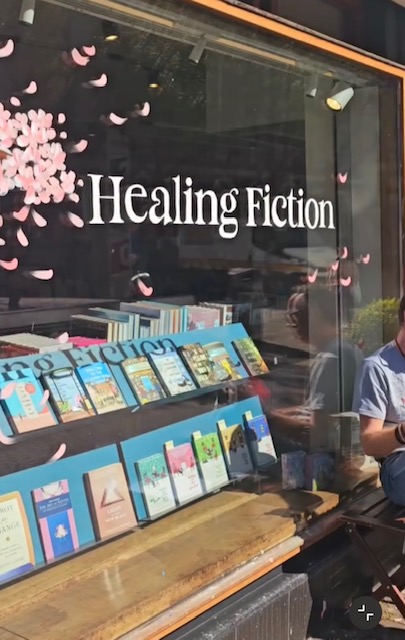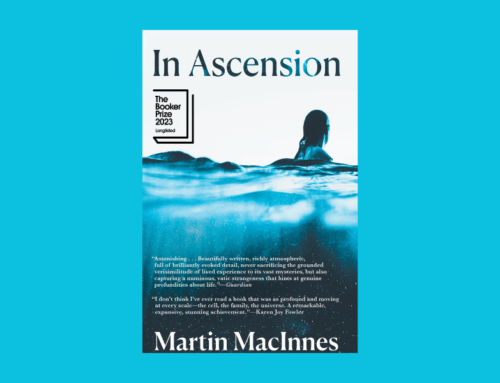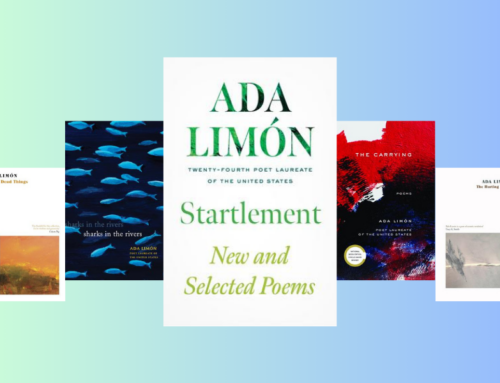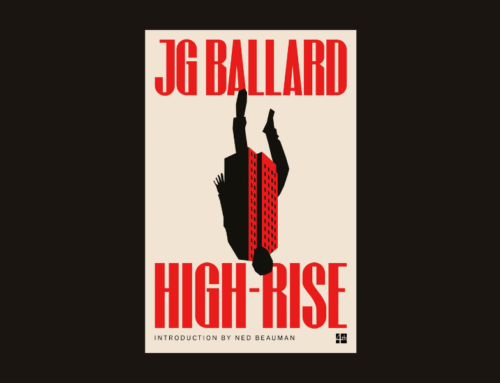On Saturday 5 July, Dutch newspaper NRC published an article on Cozy and Healing Fiction (Koffiebar, dode kat, happy end)(please note, article in Dutch and may be behind a paywall), in which they interviewed our Bella (with a cameo by Tiemen)! We’re posting an English translation of the part of the article that features Bella, with the author’s permission.
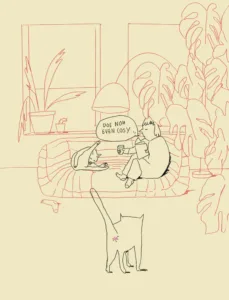 By Nathalie Wouters, editor/staff writer for NRC, illustration by Lotte Dijkstra
By Nathalie Wouters, editor/staff writer for NRC, illustration by Lotte Dijkstra
The English-language bookstore American Book Center in Amsterdam devoted a whole window display to Healing Fiction this April. This is the type of cozy fiction with a slightly more melancholic tone, in which the main character will always have worked through something by the end of the book. Days at the Morisaki Bookshop and Before the Coffee Gets Cold were featured in the window.
Bella Ogulmus (32) is the Manga, Foreign Languages & Psychology buyer at the ABC and calls cozy fiction “a huge trend. Publishers are printing one after the other at the moment.” It is requested every day in the store. Mainly by young women, from teenagers to women in their early thirties. Notably fewer men. “We also see that somewhat older people who want to read something in English for the first time start with cozy fiction. These are often books without complex story lines.”
The trend goes beyond books, says Ogulmus. “Feel-good series like Friends (1994-2004) and Gilmore Girls (2000-2007) are extremely popular among a new generation. I play a lot of games and in the gaming world, cozy, comforting games are a big trend, too. Cozy Caravan, for example: you own a coffee caravan and you have to put together a menu, design the interior, serve customers. Or Fantasy Life, a game where ‘should I plant an apple tree or a pear tree in my garden’ is the most complex choice you have to make. Games that you can play slumped on the couch, where you don’t have to be sharp or strategic. I can name a hundred of these kinds of games.”
There are also cozy coloring books for adults. “Cozy Cuties for example. With cute animals that drink coffee and go shopping. Also very popular.” Ogulmus’s colleague Tiemen Zwaan, buyer for Science Fiction & Fantasy, sees the rise of cozy fantasy as “a reaction to series like A Games of Thrones, in which almost everyone is bad and you can expect a knife in your back even at a wedding. In cozy fantasy, it’s true that – to quote Rutger Bregman – most people are good. Everything revolves around personal development, not about who gets the throne.”
[…] Bella Ogulmus of the ABC has always read a lot of Japanese literature. “Japanese writers are known for their descriptions of the beauty of the everyday. So it doesn’t surprise me that so many of these books originate there.”
[…] According to Bella Ogulmus, the appeal is primarily escapism. “People don’t feel like dealing with heavy shit. They want a break from everything that’s going on in the world, but also from the stress in their daily lives and pressure at work or school.” In recent years, one study after another has appeared showing that many young people are struggling with psychological problems and are unhappier than previous generations. They worry about inflation, the housing market and the consequences of war and world politics. It is not surprising that young people seek solace in books in which nothing ever ends badly. “Cozy fiction is a hug in book form,” says Ogulmus. “Apparently, young people need one.”

